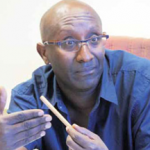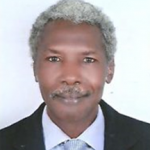Cronyism and the Future of the Private Sector in Sudan, Algeria, and Ethiopia
This research project looks into the nature of state-business relations (SBRs) in Algeria, Sudan, and Ethiopia, and how these might evolve in light of the changing internal circumstances. The three countries are going through a process of political change, with the possibility of transitioning from an autocratic political regime, to a more democratic and open one. While the economic conditions and performance of the economies of the three countries differ markedly, the relation between state and businesses until the recent events had a close resemblance, and the future challenges in terms of democratic aspirations, as well as private sector development also bear some similarities. The aim of the proposed work is to understand the nature of “cronyism” in the recent past – in the sense of close relation between the state and some privileged firms, and to explore its political role and its economic consequences. An understanding of the mechanisms used to provide privileges to some firms, and impose restrictions on others, can help figure out how state business relations fits within the broader political economy framework in select countries in North Africa and Sub Saharan Africa, and how generated privileges for insiders sustained an anti-competitive business climate, and how this reduce the growth and jobs generating potential of these countries. The goal is to be in a better position to think of how these relations can be changed in the future in ways that support better political as well as economic performance, and to provide a solid evidence-based policy advice on how to move forward.
ERF acknowledges the generous financial contribution of the Carnegie Corporation of New York.

Ishac Diwan
Director of Research, Finance for Development Lab, Paris School of Economics

Idriss Hadj Nacer
Political Economist, London School of Economics and Sciences-Po Paris

Aditya Sarkar
Independent Researcher and Visiting Fellow, World Peace Foundation

Alex De Waal
Executive Director, World Peace Foundation

Ebaidalla Mahjoub Ebaidalla
Assistant Research Professor, Ibn Khaldon Center for Humanities and Social Sciences, Qatar University

Mohammed Elhaj Mustafa Ali
Assistant Professor, University of Kassala

Alemayehu Geda
Professor of Macroeconomics and International Economics in the Department of Economics, Addis Ababa University

Kabbashi Suliman
University of Khartoum

El Mouhoub Mouhoud
Professor of Economics, Univeristy of Paris Dauphine
State Business Relations in Algeria, Sudan and Ethiopia
The development of a competitive private sector, and the spreading of innovative technologies, are among the most valuable... Read More
Mar 11, 2023
From Rags to Riches to Rags Again: Deconstructing the Narratives of Crony Capitalism and Neoliberal Ideology Through the Example of…
The analysis put forward in this paper strives to unveil the ideological and power balance dynamics of crony... Read More
Thinking Politically About Money: The Changing Role of Political Finance in The Political (Un-)Settlements in Ethiopia and Sudan
This paper examines the relationship between ‘political finance’ and ‘political settlements’ in Sudan and Ethiopia. The countries are... Read More
Political Islam and Crony Capitalism in Sudan: A Case Study of “Munazzamat Al-Dawa Al-Islamiyya”
This paper examines the role of political Islam in encouraging cronyism in Sudan, with a focus on Munazzamat... Read More
Crony Capitalism Through the “Developmental State” Model of Ethiopia: An Identification of its Main Manifestations
Ethiopia adopted the ‘developmental state model’ in early 2000. This strategy was in force until 2018, successfully registering... Read More


